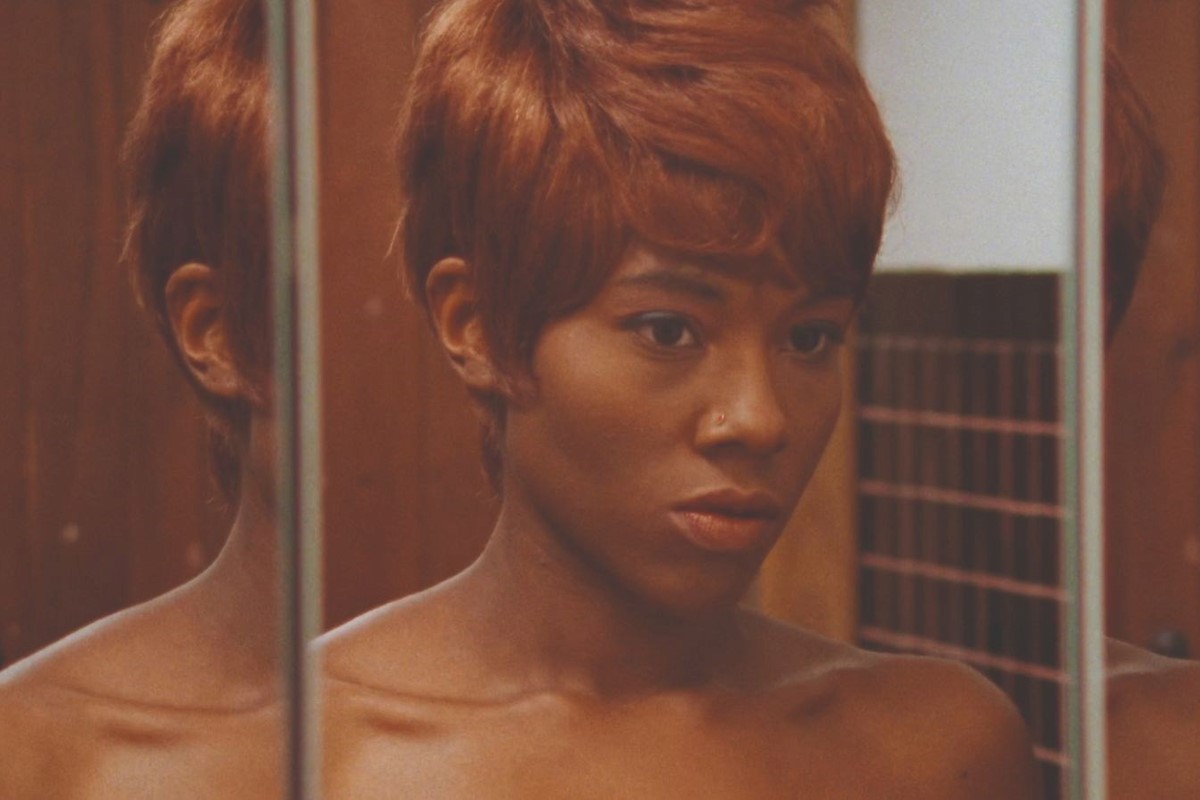
Rewrite
From groundbreaking indies to long-overlooked classics, the BFI’s Black Debutantes season celebrates the rich, radical early works of Black women filmmakers. Here are five essential films to catch
It is typical for the BFI to run seasons dedicated to the work of singular filmmakers such as Akira Kurosawa or François Truffaut, however, when film writer and programmer Rógan Graham wondered if there was a Black female filmmaker whose feature-length oeuvre could accommodate a month-long season, she came up short. “I think there are only six Black British women filmmakers who’ve had a film with a UK-wide release, and I’m pretty sure three of them have been in the last few years. It’s a dire scene out there,” Graham notes.
Frustration led her to the idea for a season at the BFI dedicated to early works by Black women and femme filmmakers titled Black Debutantes. She shares, “I started looking at filmographies from this perspective and discovered that some of my favourite films, such as Drylongso and Naked Acts, were directorial debuts. I wanted to celebrate these artists and make people familiar with their work.” Equally crucial to Graham was to have these films engage in dialogue with each other and assert to audiences that they come from a lineage of Black storytelling.
While no distinct narrative or stylistic theme is guiding the programme, Graham shares how the relationship between mothers and daughters is present throughout the season, not just in the stories but in the archiving and restoration of the projects. “In the case of Kathleen Collins, who directed Losing Ground, it was her daughter, Nina Collins, who was safeguarding her archive. It wasn’t a film organisation or a library, but her daughter who led the restoration of her films and gave her mother’s work a new lease of life in 2015. If it wasn’t for her daughter’s desire to preserve her mother’s legacy, it might have been lost to history,” Graham explains.
Ahead of the Black Debutante season, AnOther has curated a guide to five must-watch films screening at the BFI.
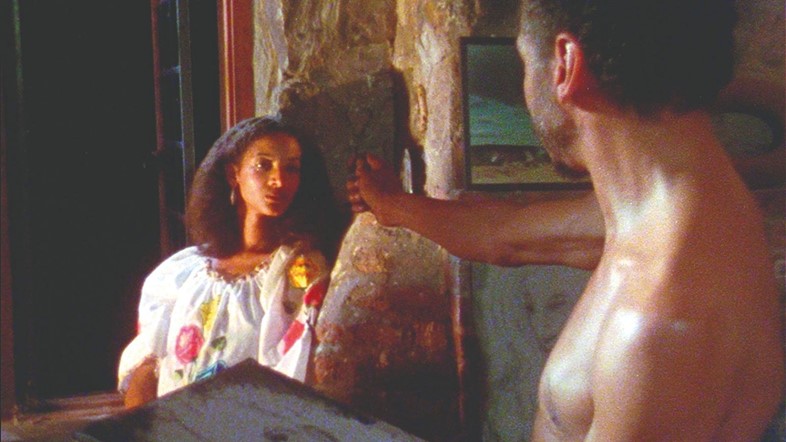
Screening on 3 and 11 May
In a lecture at Howard University in 1984, writer and director Kathleen Collins asked, “How do we divest ourselves from the need to make ourselves extraordinary?” referencing how Hollywood only accepted Black protagonists if they were tragic or mythical. In Losing Ground, she aptly answers her own question and decentralises overt oppression, shifting the focus to universal themes of desire, power and the pursuit of artistic expression. As we move through the film, we learn about the interior life of the protagonist, Sara Rogers, who is a middle-class philosophy professor, and her shaky marriage with the free-spirited artist Victor. Beautifully shot with a painterly, almost watercolour-like quality, Losing Ground is a revelatory account of one woman’s desire for agency.

Screening on 8 and 14 May
“Self-reflexive” is the word that pops up in discussions of Bridgett M Davis’s first and only feature film, Naked Acts. Set in Brooklyn and shot over three months, the film draws on the legacies of Black cinema and follows its protagonist, Cicely (a third-generation Black female actress), as she lands her first role in a low-budget indie production. There, she learns she is required to perform a nude scene, setting off an intimate and layered exploration of her childhood, Black femininity on screen and the body as a site of shame and revelation. In 1996, it was only released in select cinemas in New York, but over the last few years, it has been restored and afforded a wider release, including a limited festival run in 2024. “Naked Acts is a true discovery for the UK,” shares Graham. “It is well crafted, well written, not too esoteric and embodies the essence of a classic American indie.”
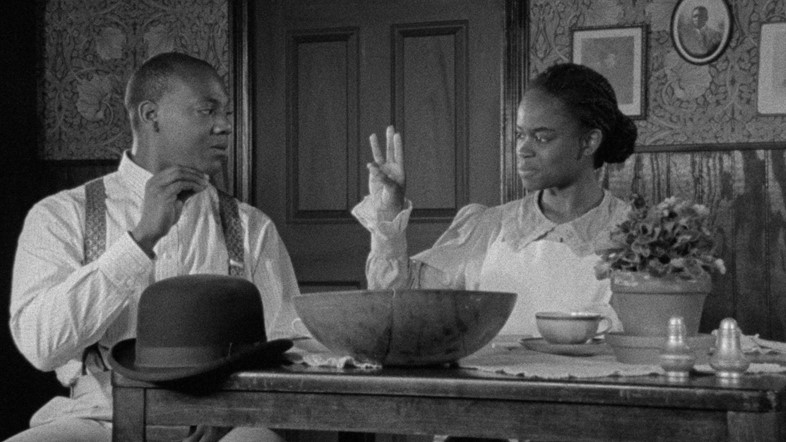
Screening on 8 and 24 May
In 1999, after years of working in experimental shorts, Zeinabu irene Davis delivered Compensation, a bold, deeply humanistic feature shot in luminous black and white. Set in Chicago, the film portrays two parallel love stories set almost a century apart; each centred on a deaf woman and her male hearing partner. The women (played by Michelle A Banks) are artists and deeply aware of the fragility of connection across race, gender, and ability. In each story, love blossoms and then falters against the backdrop of loss. Despite it being her first feature-length project, Davis’s approach is formally daring as the film is largely silent, with intertitles and sign language standing in for spoken dialogue. Compensation drew praise at Sundance, where it premiered and has been described by critics as an emotionally resonant act of cinematic reclamation.
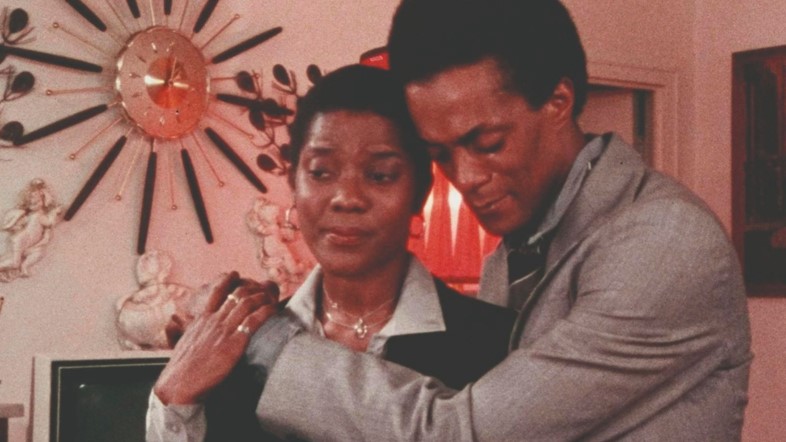
Screening on 3 and 15 May
Jessie Maple is widely considered the first Black woman to write, direct and produce her own independent feature. The film in question, Will, starring Loretta Devine and Obaka Adedunyo, is a beautifully shot, heartbreaking story of a former college basketball star (Adedunyo) grappling with addiction and unemployment in 1980s Harlem. The film captures his journey as he navigates recovery and finds purpose, yet unlike films in the afterschool special genre, it doesn’t skim past the institutional challenges that underscore addiction. Like many films in Black Debutantes, Will has been newly restored, and the screening on May 3 marks the UK premiere of the restoration. “Maple passed away in 2023, and her estate is notoriously protective of her work, so it is a privilege to be able to show this film. There is a definite need to celebrate her legacy, especially as she was such an influential figure,” Graham shares.
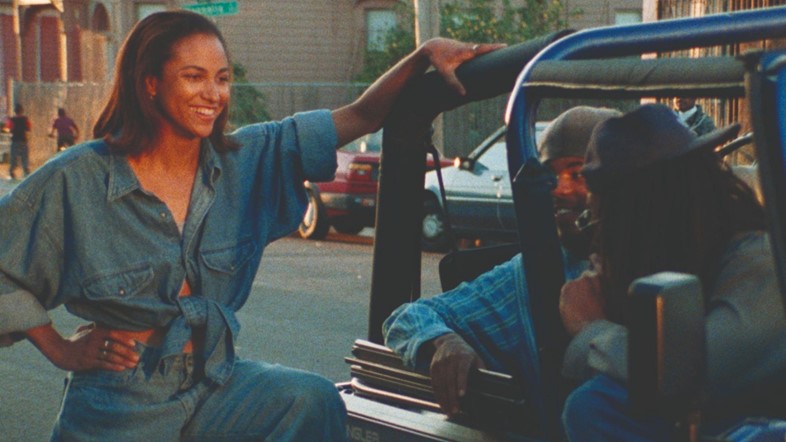
Screening on 11 and 22 May
On the surface, the 1998 indie Drylongso looks like your classic coming-of-age film about girlhood. It has all the trappings that make up the genre: a tricky mother-daughter dynamic, unlikely friendships, and, perhaps most fittingly, a school project that anchors the narrative. However, Cauleen Smith’s directorial debut – also called a realist drama, a murder mystery and a handmade buddy movie – resists genre. Set in Oakland in the late 1990s, the film follows Pica, a college art student who takes Polaroids of young-black men to offer them a sense of permanence as she believes many of them will end up incarcerated or dead. The grainy, sun-drenched cinematography captures Oakland’s Black community, both threatened and vibrant, while Smith’s narrative holds space for grief, survival, and joy.
Black Debutantes: A Collection of Early Works by Black Women Directors takes place at BFI Southbank from 1 – 31 May 2025, with select titles on BFI Player from May 5.
in HTML format, including tags, to make it appealing and easy to read for Japanese-speaking readers aged 20 to 40 interested in fashion. Organize the content with appropriate headings and subheadings (h1, h2, h3, h4, h5, h6), translating all text, including headings, into Japanese. Retain any existing
tags from
From groundbreaking indies to long-overlooked classics, the BFI’s Black Debutantes season celebrates the rich, radical early works of Black women filmmakers. Here are five essential films to catch
It is typical for the BFI to run seasons dedicated to the work of singular filmmakers such as Akira Kurosawa or François Truffaut, however, when film writer and programmer Rógan Graham wondered if there was a Black female filmmaker whose feature-length oeuvre could accommodate a month-long season, she came up short. “I think there are only six Black British women filmmakers who’ve had a film with a UK-wide release, and I’m pretty sure three of them have been in the last few years. It’s a dire scene out there,” Graham notes.
Frustration led her to the idea for a season at the BFI dedicated to early works by Black women and femme filmmakers titled Black Debutantes. She shares, “I started looking at filmographies from this perspective and discovered that some of my favourite films, such as Drylongso and Naked Acts, were directorial debuts. I wanted to celebrate these artists and make people familiar with their work.” Equally crucial to Graham was to have these films engage in dialogue with each other and assert to audiences that they come from a lineage of Black storytelling.
While no distinct narrative or stylistic theme is guiding the programme, Graham shares how the relationship between mothers and daughters is present throughout the season, not just in the stories but in the archiving and restoration of the projects. “In the case of Kathleen Collins, who directed Losing Ground, it was her daughter, Nina Collins, who was safeguarding her archive. It wasn’t a film organisation or a library, but her daughter who led the restoration of her films and gave her mother’s work a new lease of life in 2015. If it wasn’t for her daughter’s desire to preserve her mother’s legacy, it might have been lost to history,” Graham explains.
Ahead of the Black Debutante season, AnOther has curated a guide to five must-watch films screening at the BFI.

Screening on 3 and 11 May
In a lecture at Howard University in 1984, writer and director Kathleen Collins asked, “How do we divest ourselves from the need to make ourselves extraordinary?” referencing how Hollywood only accepted Black protagonists if they were tragic or mythical. In Losing Ground, she aptly answers her own question and decentralises overt oppression, shifting the focus to universal themes of desire, power and the pursuit of artistic expression. As we move through the film, we learn about the interior life of the protagonist, Sara Rogers, who is a middle-class philosophy professor, and her shaky marriage with the free-spirited artist Victor. Beautifully shot with a painterly, almost watercolour-like quality, Losing Ground is a revelatory account of one woman’s desire for agency.

Screening on 8 and 14 May
“Self-reflexive” is the word that pops up in discussions of Bridgett M Davis’s first and only feature film, Naked Acts. Set in Brooklyn and shot over three months, the film draws on the legacies of Black cinema and follows its protagonist, Cicely (a third-generation Black female actress), as she lands her first role in a low-budget indie production. There, she learns she is required to perform a nude scene, setting off an intimate and layered exploration of her childhood, Black femininity on screen and the body as a site of shame and revelation. In 1996, it was only released in select cinemas in New York, but over the last few years, it has been restored and afforded a wider release, including a limited festival run in 2024. “Naked Acts is a true discovery for the UK,” shares Graham. “It is well crafted, well written, not too esoteric and embodies the essence of a classic American indie.”

Screening on 8 and 24 May
In 1999, after years of working in experimental shorts, Zeinabu irene Davis delivered Compensation, a bold, deeply humanistic feature shot in luminous black and white. Set in Chicago, the film portrays two parallel love stories set almost a century apart; each centred on a deaf woman and her male hearing partner. The women (played by Michelle A Banks) are artists and deeply aware of the fragility of connection across race, gender, and ability. In each story, love blossoms and then falters against the backdrop of loss. Despite it being her first feature-length project, Davis’s approach is formally daring as the film is largely silent, with intertitles and sign language standing in for spoken dialogue. Compensation drew praise at Sundance, where it premiered and has been described by critics as an emotionally resonant act of cinematic reclamation.

Screening on 3 and 15 May
Jessie Maple is widely considered the first Black woman to write, direct and produce her own independent feature. The film in question, Will, starring Loretta Devine and Obaka Adedunyo, is a beautifully shot, heartbreaking story of a former college basketball star (Adedunyo) grappling with addiction and unemployment in 1980s Harlem. The film captures his journey as he navigates recovery and finds purpose, yet unlike films in the afterschool special genre, it doesn’t skim past the institutional challenges that underscore addiction. Like many films in Black Debutantes, Will has been newly restored, and the screening on May 3 marks the UK premiere of the restoration. “Maple passed away in 2023, and her estate is notoriously protective of her work, so it is a privilege to be able to show this film. There is a definite need to celebrate her legacy, especially as she was such an influential figure,” Graham shares.

Screening on 11 and 22 May
On the surface, the 1998 indie Drylongso looks like your classic coming-of-age film about girlhood. It has all the trappings that make up the genre: a tricky mother-daughter dynamic, unlikely friendships, and, perhaps most fittingly, a school project that anchors the narrative. However, Cauleen Smith’s directorial debut – also called a realist drama, a murder mystery and a handmade buddy movie – resists genre. Set in Oakland in the late 1990s, the film follows Pica, a college art student who takes Polaroids of young-black men to offer them a sense of permanence as she believes many of them will end up incarcerated or dead. The grainy, sun-drenched cinematography captures Oakland’s Black community, both threatened and vibrant, while Smith’s narrative holds space for grief, survival, and joy.
Black Debutantes: A Collection of Early Works by Black Women Directors takes place at BFI Southbank from 1 – 31 May 2025, with select titles on BFI Player from May 5.
and integrate them seamlessly into the new content without adding new tags. Ensure the new content is fashion-related, written entirely in Japanese, and approximately 1500 words. Conclude with a “結論” section and a well-formatted “よくある質問” section. Avoid including an introduction or a note explaining the process.


